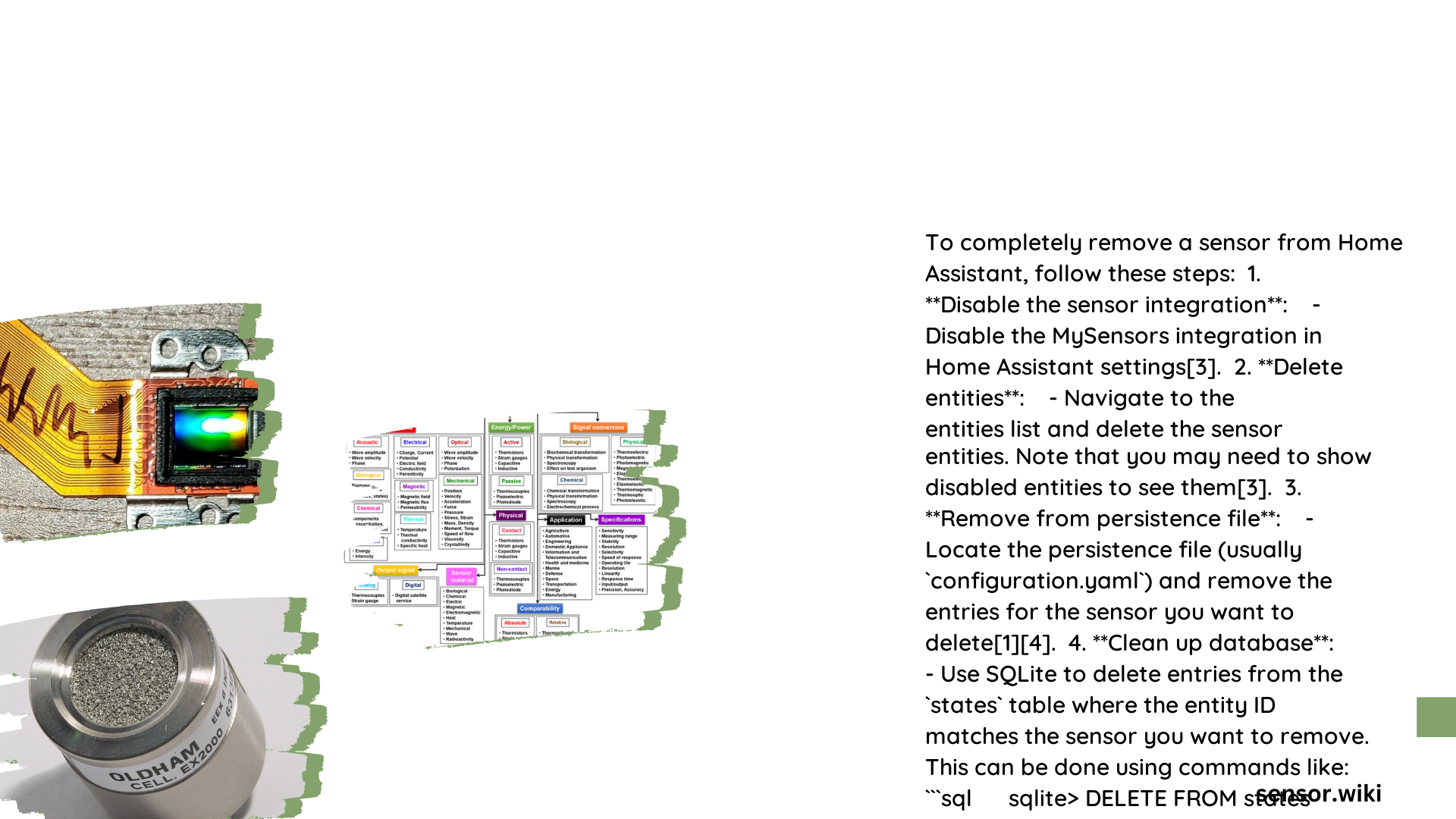Home Assistant users often struggle with removing sensors completely from their smart home ecosystem. Deleting a sensor involves more than just clicking a button; it requires a systematic approach that includes configuration modifications, integration management, and potential database cleanup. This comprehensive guide will walk you through the exact steps to permanently eliminate unwanted sensors from your Home Assistant setup, ensuring a clean and optimized smart home environment.
Why Remove Sensors from Home Assistant?
Sensors can accumulate over time, cluttering your Home Assistant interface and potentially impacting system performance. Understanding the precise method to remove them is crucial for maintaining an efficient smart home configuration.
What Are the Exact Steps to Remove a Sensor?

YAML Configuration Removal
- Locate Sensor Definition
- Open
configuration.yaml - Find the specific sensor configuration
-
Delete the entire sensor block
-
Unique ID Considerations
“`yaml
sensor:- platform: example
unique_id: my_unique_sensor
“`
- platform: example
UI Entity Management
| Step | Action | Purpose |
|---|---|---|
| 1 | Navigate to Entities | Locate sensor |
| 2 | Open Entity Settings | Access deletion options |
| 3 | Click Delete | Remove sensor permanently |
Database and Persistence Cleanup
Command-Line Approaches
- Stop Home Assistant service
- Use
sqlite3to remove sensor entries - Clean persistence files manually
How to Handle Integration-Specific Sensors?
MySensors and Third-Party Integrations
- Disable integration before sensor removal
- Remove all references in automations
- Restart Home Assistant after changes
What Challenges Might You Encounter?
Common Removal Obstacles
- Read-only entities
- Persistent database entries
- Hidden sensor references
Troubleshooting Techniques
- Verify no automation dependencies
- Check for hidden entity references
- Use
recorder.purgeservice for data removal
Best Practices for Sensor Management
- Regular configuration audits
- Maintain clean integration settings
- Use unique IDs for better management
- Create backups before major changes
Technical Considerations
Performance Impact
- Removing unnecessary sensors reduces system load
- Minimizes database storage requirements
- Improves overall Home Assistant responsiveness
Data Retention Strategy
- Purge historical data before sensor removal
- Use
recorder.purge_entitiesservice - Consider export options for important historical data
Expert Tips
- Always backup configuration before deletion
- Restart Home Assistant after major changes
- Use unique IDs for precise entity management
- Monitor system performance post-removal
Recommended Tools
sqlite3for database management- Home Assistant configuration validator
- YAML linter for configuration checks
Potential Risks
⚠️ Warning: Improper sensor removal can:
– Cause configuration errors
– Leave orphaned database entries
– Potentially impact system stability
Final Recommendations
- Systematic approach to sensor removal
- Careful configuration management
- Regular system maintenance
- Continuous learning and adaptation
Conclusion
Removing sensors from Home Assistant requires a methodical approach. By following these comprehensive steps, you can effectively clean your smart home configuration, optimize system performance, and maintain a streamlined automation environment.
